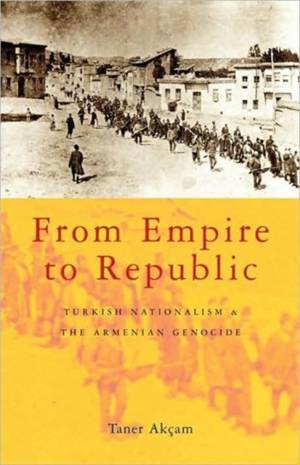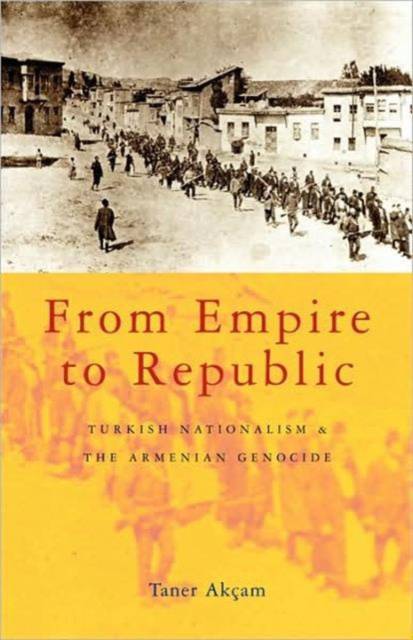
Bedankt voor het vertrouwen het afgelopen jaar! Om jou te bedanken bieden we GRATIS verzending (in België) aan op alles gedurende de hele maand januari.
- Afhalen na 1 uur in een winkel met voorraad
- In januari gratis thuislevering in België
- Ruim aanbod met 7 miljoen producten
Bedankt voor het vertrouwen het afgelopen jaar! Om jou te bedanken bieden we GRATIS verzending (in België) aan op alles gedurende de hele maand januari.
- Afhalen na 1 uur in een winkel met voorraad
- In januari gratis thuislevering in België
- Ruim aanbod met 7 miljoen producten
Zoeken
From Empire to Republic
Turkish Nationalism and the Armenian Genocide
Taner Akçam
Paperback | Engels
€ 72,95
+ 145 punten
Uitvoering
Omschrijving
The murder of more than one million Armenians by the Ottoman Turkish government in 1915 has been acknowledged as genocide. Yet almost 100 years later, these crimes remain unrecognized by the Turkish state. This book is the first attempt by a Turk to understand the genocide from a perpetrator's, rather than victim's, perspective, and to contextualize the events of 1915 within Turkey's political history and western regional policies. Turkey today is in the midst of a tumultuous transition. It is emerging from its Ottoman legacy and on its way to recognition by the west as a normal nation state. But until it confronts its past and present violations of human rights, it will never be a truly democratic nation. This book explores the sources of the Armenian genocide, how Turks today view it, the meanings of Turkish and Armenian identity, and how the long legacy of western intervention in the region has suppressed reform, rather than promoted democracy.
Specificaties
Betrokkenen
- Auteur(s):
- Uitgeverij:
Inhoud
- Aantal bladzijden:
- 288
- Taal:
- Engels
Eigenschappen
- Productcode (EAN):
- 9781842775271
- Verschijningsdatum:
- 1/04/2004
- Uitvoering:
- Paperback
- Formaat:
- Trade paperback (VS)
- Afmetingen:
- 144 mm x 216 mm
- Gewicht:
- 367 g

Alleen bij Standaard Boekhandel
+ 145 punten op je klantenkaart van Standaard Boekhandel
Beoordelingen
We publiceren alleen reviews die voldoen aan de voorwaarden voor reviews. Bekijk onze voorwaarden voor reviews.









